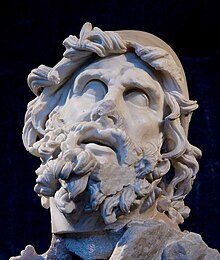This is an essay on the Wikipedia:Neutral point of view policies. It contains the advice or opinions of one or more Wikipedia contributors. This page is not an encyclopedia article, nor is it one of Wikipedia's policies or guidelines, as it has not been thoroughly vetted by the community. Some essays represent widespread norms; others only represent minority viewpoints. |
| This page in a nutshell: Be careful when using the words "fiction" and "myth." While related, they are not interchangeable, and may even be insulting if used in the wrong way. |

People can throw words around casually and imprecisely, but when writing encyclopedia articles, we should strive for accuracy and recognize the clear distinctions between related concepts.
Fiction is written by authors who are well aware that they are creating a work that does not purport to be the truth. The recipients of fictional works are for the most part well aware that the work is fictional, but they like fiction because it is entertaining, and potentially also inspiring and illuminating.
Myth, on the other hand, is usually of uncertain origin and authorship, and in many cases, seems to have developed in layers over long periods of time. In many cases it was and is spread by people who sincerely believe the myth to be true.
Almost no sane person believes that the works of William Shakespeare or Mary Shelley or Charles Dickens or Ernest Hemingway or Agatha Christie or Robert A. Heinlein are factual accounts. However many millions of people might believe that the myths of their culture or religion are true, including cases which have been scientifically debunked[vague] such as the Noah's Ark myth. Calling the story "fictional" implies that one or a few people thousands of years ago deliberately created a false story, whereas it is possible that the people who originally set the ancient myth to writing genuinely believed that it is the truth, as they understood truth. It is also possible that the myth was originally created as a fiction for the purpose of education or illustrating a point, or that it was created originally as a deliberate lie for ulterior purposes, and today it is not always possible to determine the motives of the original authors, whomever they may have been.